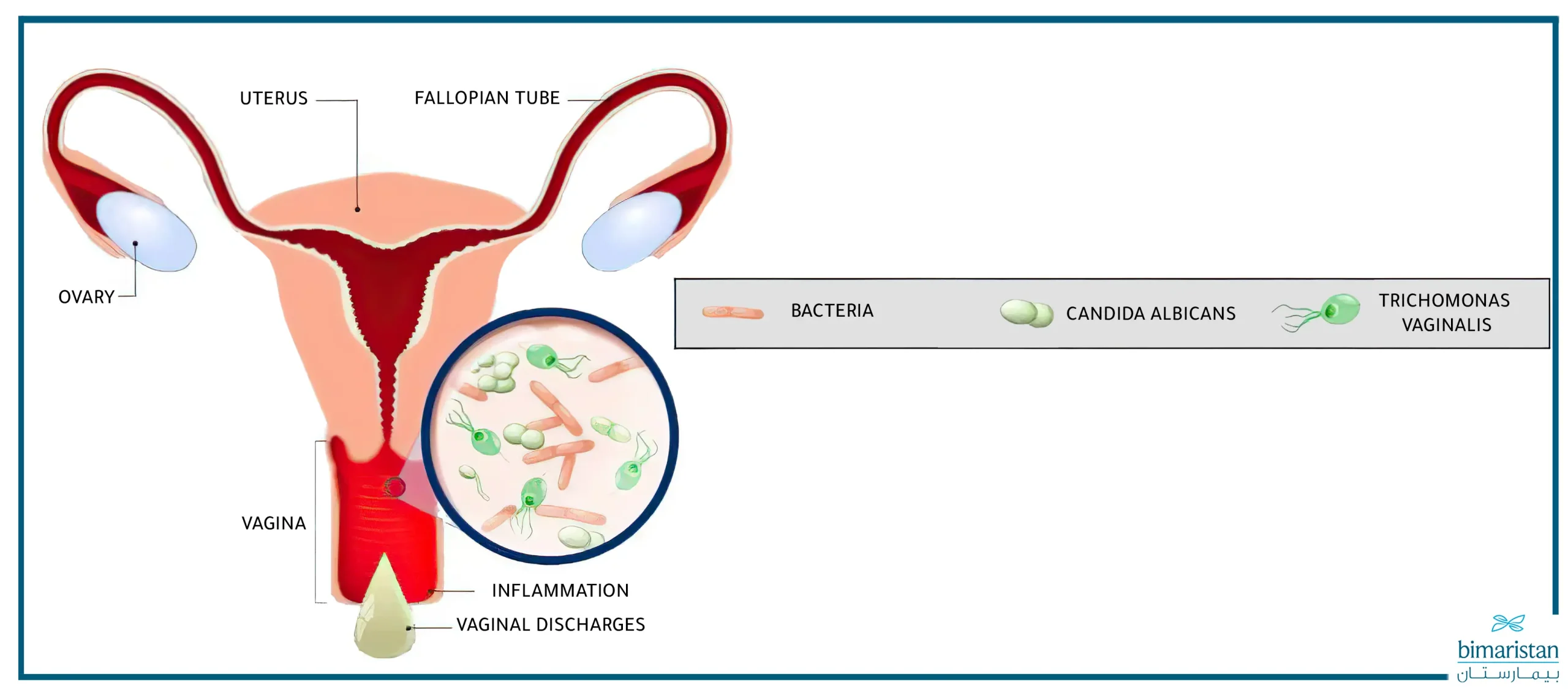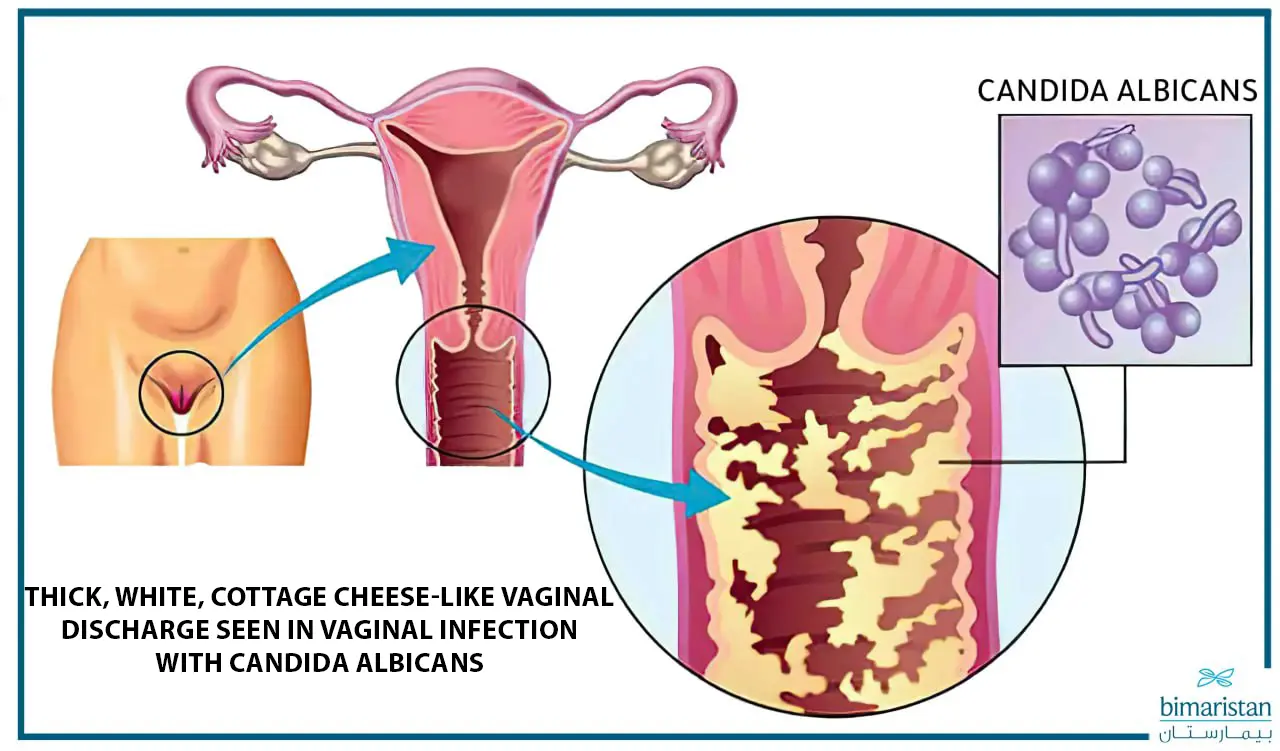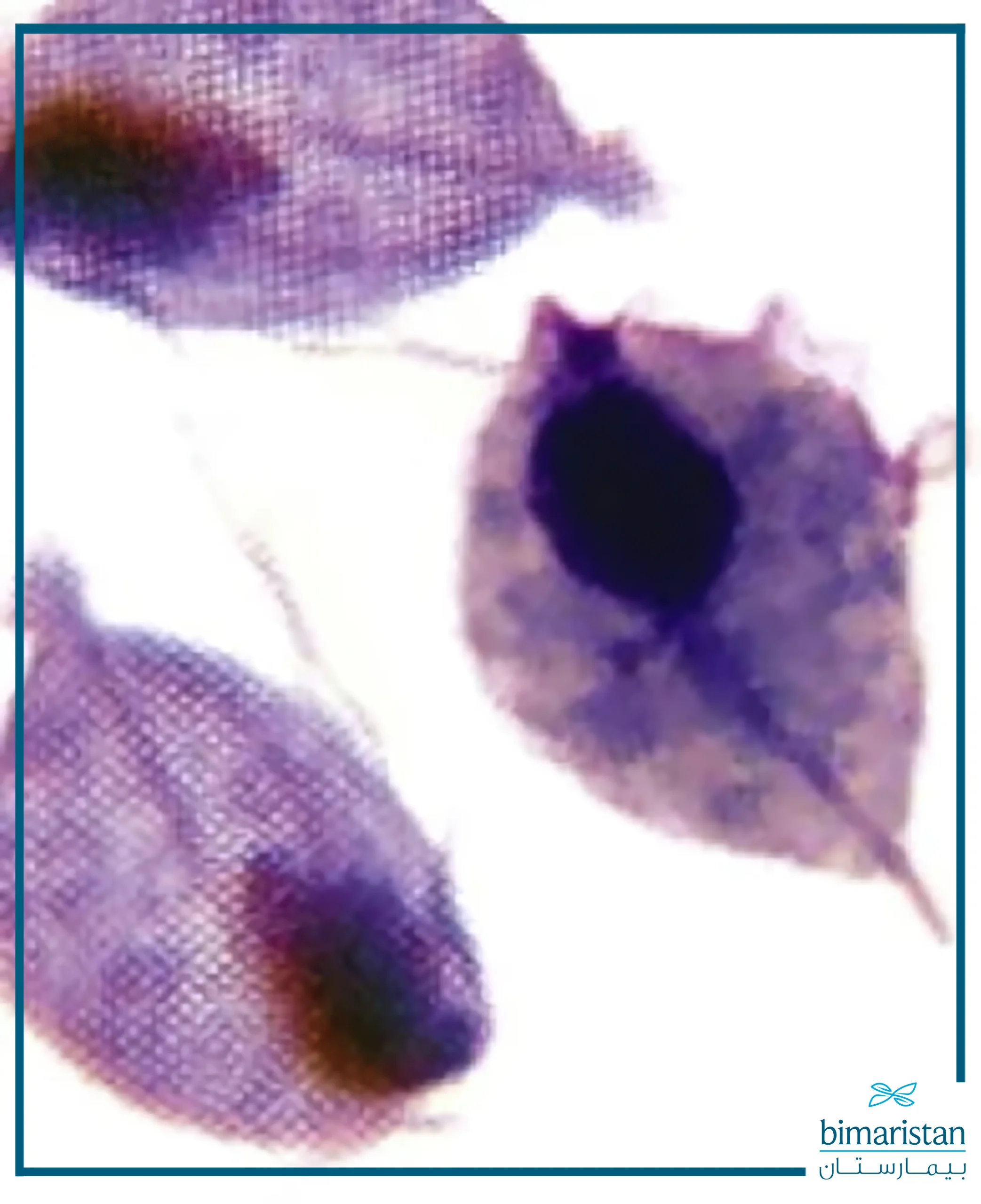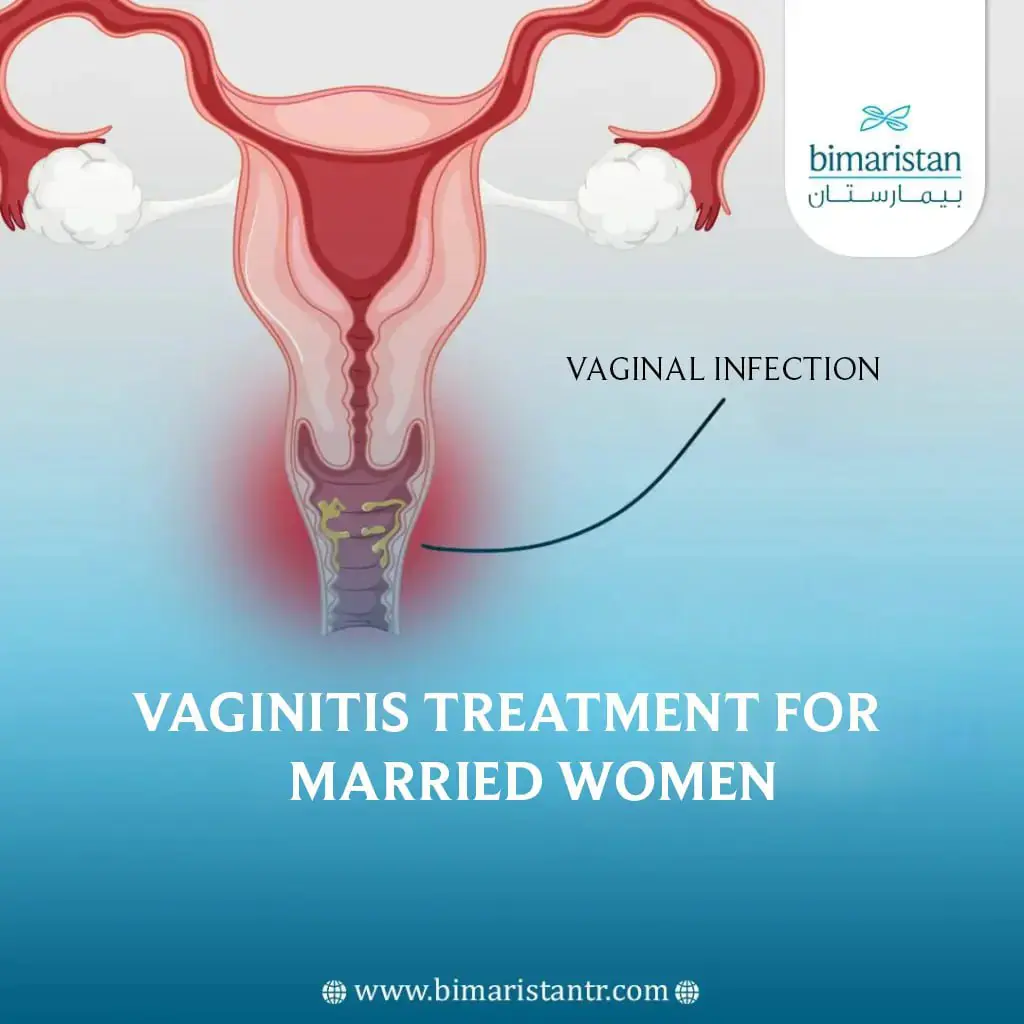Vaginitis treatment is important for all women (especially married women) due to their suffering from annoying symptoms such as burning and vaginal itching. To treat these infections, we will recommend some effective tips and medications.
Introduction to Vaginitis treatment for married women
Vaginitis is a common issue among married women. The symptoms of this condition can range from being clinically silent without any symptoms to a disease that presents multiple symptoms, such as the presence of discharge or itching in the genital area and occasional pain.
The types of vaginosis vary depending on the cause. It can affect young girls, married young women, or even older women, and the treatment for vaginal inflammation differs according to the cause.
The treatment of vaginitis for married women includes several medical preparations, each of which is used according to the type of viginal infection the woman is experiencing. This may include oral tablets or the application of gel or cream to the inflamed area.
Bimarstan Medical Center will provide medical advice if you experience any symptoms that concern you and hinder your daily activities.
How does Vaginitis occur?
Vaginitis is a condition that encompasses various classifications. It is not a specific disease but rather a group of causes that lead to vaginal infections. The diagnosis of these causes varies depending on the symptoms presented by the patient, and the type of cause that leads to vaginal vaginosis determines its treatment.
In its natural state, the vagina contains a number of bacteria and fungi (yeast) collectively known as vaginal flora. The components of this flora maintain a balance among themselves in terms of the number of each organism present (meaning that the number of bacteria and fungi remains constant, and the condition here is normal, without any illness).

When there is an imbalance in the vaginal flora and excessive growth of one component at the expense of the others, or the invasion of new unoccupied organisms in the vagina, inflammation occurs.
Vaginitis can also occur in married women without any infection. It may be caused by allergies to certain products used or due to hormonal changes.
We can conclude that the symptoms and treatment of this condition are not always constant. Therefore, we will first discuss the types of vaginitis in married women, their symptoms, and the factors that contribute to their occurrence.

Bacterial Vaginosis (BV)
Bacterial Vaginosis (BV) is usually caused by excessive growth of vaginal flora bacteria, which is the most common cause of vaginal infections in sexually active married women. However, it is often unnoticed because itching (itchy vulva) and vaginal thrush are uncommon, and the main bacterial vaginosis bv symptoms are:
- Very foul-smelling vaginal odor (resembling rotten fish), especially after intercourse or during menstruation.
- Some vaginal discharge with the same foul vaginal odor may be observed.
As mentioned earlier, it is often asymptomatic, but when it occurs during pregnancy, it can cause several problems, including:
- Premature membrane rupture (water breaking before the due date)
- Preterm birth
- Some types of bacteria can infect the fetus and cause permanent damage after birth
The main contributing factors include:
- Smoking
- Excessive vaginal washing (using douches etc…)
- New sexual partner or multiple partners
Fungal Vaginosis (vaginal yeast infection)
Vaginal candidiasis (vaginal fungal infection) is caused by a type of fungus called Candida Albicans, and they are the second most common cause of vaginal infections after bacterial infections. However, married women tend to think that yeast infection is more common due to the frequency of symptoms. Women may experience:
- Thick, white, cottage cheese-like vaginal discharge (the most prominent symptom).
- Itching in the genital area.
- Burning and pain, especially during urination and intercourse.
- Redness, swelling, and inflammation of the external genitalia

There are several risk factors for developing a vaginal yeast infection, including:
- Taking antibiotics for other illnesses (as bacteria die off, the imbalance in vaginal flora provides an opportunity for yeast to overgrow)
- Pregnancy (due to hormonal changes in the body)
- Diabetes
- Weakened immune system due to immune-suppressing medications, severe malnutrition, or HIV infection

Vaginal Trichomoniasis
It is a sexually transmitted infection (STD, transmitted from partner to partner), and it is a common cause of vaginitis. It occurs due to an infection with a type of single-celled organism called Trichomonas vaginalis.

Contracting this infection increases the likelihood of contracting other sexually transmitted diseases such as HIV, and it causes many symptoms, including:
- Yellow-green vaginal discharge with a foul vaginal odor
- A feeling of vaginal itching and burning in the genital area
- Pain during urination and intercourse
- Light bleeding (spotting), especially after intercourse
- Redness, swelling, and inflammation of the genital organs
- Pain and discomfort in the lower abdomen
- Since it is a sexually transmitted infection, the most common source of contracting vaginal Trichomoniasis in women is an infected partner during intercourse
Non-infectious Vaginitis
These inflammations occur as a result of sensitivity of the genital and vaginal skin to certain feminine products (meaning there is no contagious or pathogenic factor).
The symptoms of these inflammations include:
- Severe itching and burning with irritation and redness of the genital skin.
- Thick vaginal secretions.
Common causes of these inflammations include:
- Scented pads
- Sprays and disinfectants
- Spermicides (used for contraception)
- Vaginal washes (douches)
- Toilet paper
- Vaginal inserts (tampons)
And many other foreign bodies and substances that can cause allergies and, consequently, lead to inflammation of the vagina.
Atrophic Vaginitis
These are inflammations that occur due to hormonal disturbances in women before or after menopause, after childbirth, or during breastfeeding due to a decrease in estrogen (the female hormone) in the female body. In this case, the vagina becomes dry and consequently experiences the following symptoms:
- Itching and burning sensation in the genital area
- Vaginal dryness
- Pain during intercourse
- Urinary urgency (increased desire to urinate) and frequency (increased number of times urinating)
- Abnormal vaginal discharge
Some predisposing factors for atrophic vaginitis, in addition to menopause, breastfeeding, and childbirth, include:
- Oophorectomy (removal of the ovaries)
- Certain breast cancer medications
- Some medications for endometriosis
- Radiation therapy to the pelvic and lower abdominal region (exposure of the ovaries to radiation)
Other types of Vaginitis
There are some other bacteria and viruses that infect the vagina and cause ulcers and sores (vaginal thrush) in it and in the external genitalia. The most common of these viruses is the Herpes simplex virus, and its symptoms are painful sores on the genitalia that resemble those that appear on the lips.
Treatment of Vaginitis for Married Women
As mentioned earlier, it is important to identify the type of pathogen or causative agent of vaginal infections to treat them effectively. The cause of vaginosis can be determined through the symptoms experienced by married women or through certain tests and analyses of vaginal discharges, in addition to microscopic examination.
After identifying the causative agent, the treatment for vaginitis in married women is as follows:
Treatment of Bacterial Vaginosis BV
To treat bacterial vaginosis bv in married women (after confirming that the cause is bacterial, as incorrect treatment can worsen the condition), one of the following medications can be taken:
- Metronidazole (Flagyl) orally, 500 mg tablets twice a day for 7 days.
- Metronidazole gel 0.75% intravaginally, once a day for 5 days.
- Secnidazole orally, a single dose of 2 grams.
- Clindamycin orally, 300 mg twice a day for 7 days.
- Clindamycin cream 2% intravaginally, once a day at bedtime for 7 days.
- Clindamycin vaginal ovules 100 mg intravaginally, once a day at bedtime for 3 days.
Important note: When pregnant, it is advisable to consult a specialist physician and not take any medications without their advice.
Treatment of Fungal Vaginitis (vaginal yeast infection)
To treat vaginal infections caused by yeast in married women, it is recommended to take one of the following medications:
- Clotrimazole vaginal suppositories 80 mg, once a day for 3 days.
- Clotrimazole vaginal tablets 100 mg, twice a day for 3 days.
- Butoconazole cream 2%, for 3 days.
Treatment of Trichomoniasis Vaginalis
To treat vaginal infections caused by trichomonas, it is recommended to take one of the following medications:
- Metronidazole, Tinidazole, or Secnidazole orally, a single dose of 2 grams.
- Metronidazole orally, 500 mg twice a day for 7 days.
It is essential to treat both partners (male and female) and avoid sexual intercourse during the treatment period and until complete recovery, as vaginal trichomoniasis is transmitted through sexual contact. Additionally, consultation with a doctor is necessary in case of pregnancy or breastfeeding to receive appropriate treatment.
Treatment of non-infectious Vaginitis
To treat non-infectious vaginitis in married women, it is essential to avoid the factors that have led to these inflammations and prevent their recurrence. It is also advisable to use alternatives that do not cause irritation or sensitivity to the genital area.
Treatment of Atrophic Vaginitis
The treatment involves the local application of estrogen hormone in the vagina (in some cases, it may be given orally) under the supervision of a specialist physician to avoid the numerous risks associated with this treatment.
Essential tips for prevention after treating Vaginitis in married women
- Avoid sexual intercourse during the infection and treatment period.
- Do not wear overly tight clothes daily; opt for cotton fabrics instead.
- Avoid using irritating or sensitizing substances in the genital area.
- Avoid hot baths.
- When wiping the area, wipe from front to back, not the other way around.
- Avoid washing the genital organs, as it does not prevent infection and may increase the risk. It is preferable to keep the area dry.
- Consuming acidic foods, especially during breakfast, can help prevent vaginal inflammation when taking antibiotics for other medical conditions.
- Increasing garlic intake may have benefits in treating vaginal inflammation and reducing its symptoms.
References:
- ACOG
- Johns Hopkins
